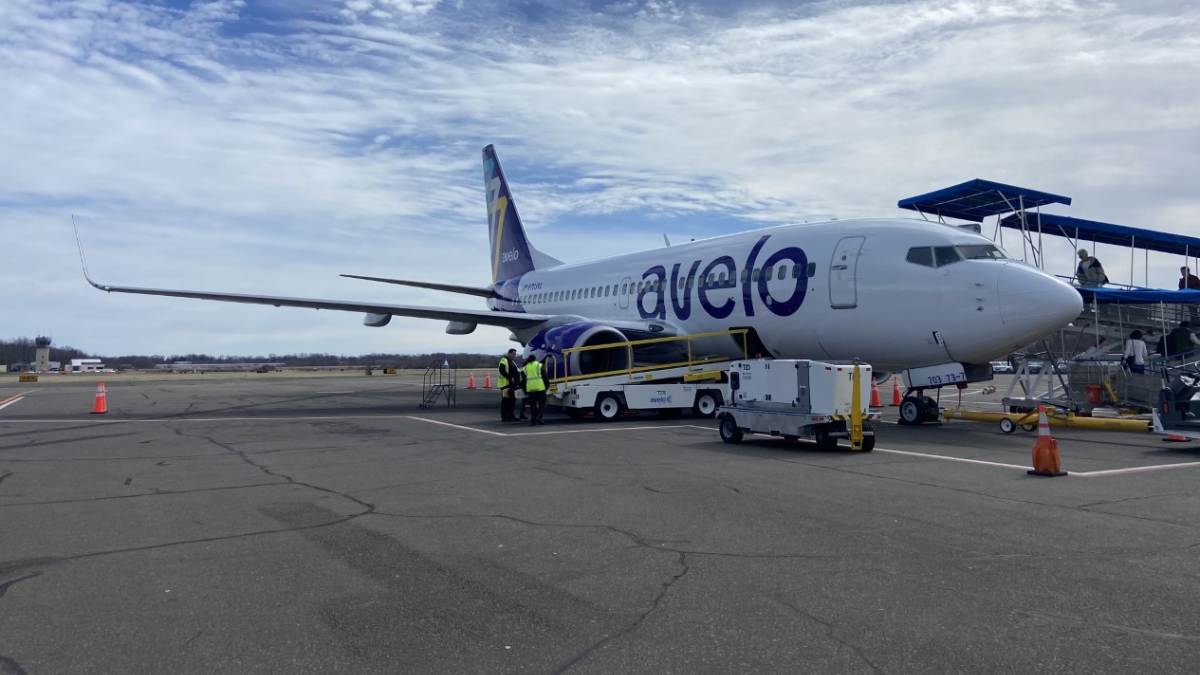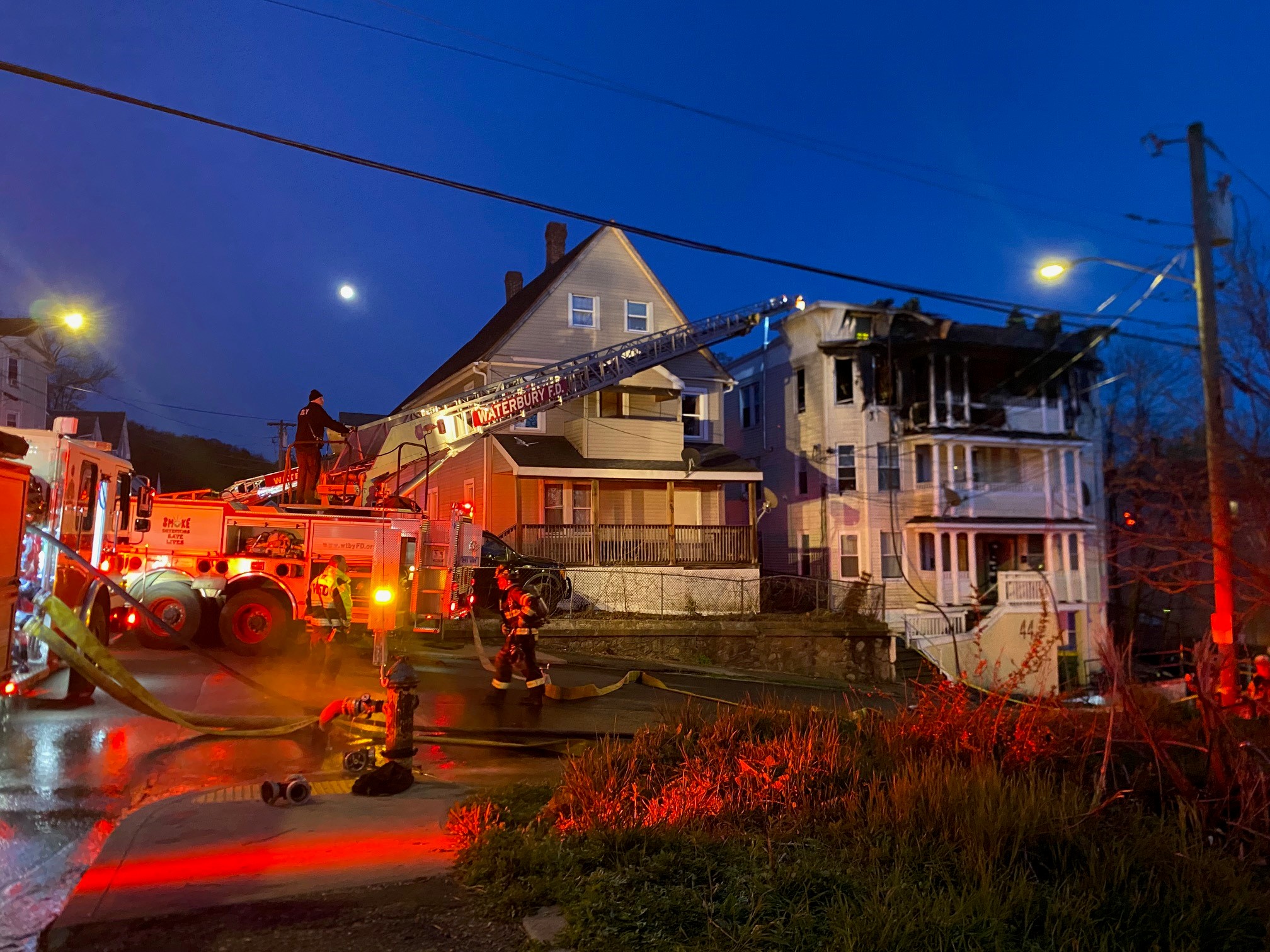Federal inmates in Connecticut have agreed to settle a class-action lawsuit accusing prison officials of not doing enough to protect them from the coronavirus, including transferring vulnerable prisoners to home confinement.
Notice of the agreement involving inmates at the Federal Correctional Institution in Danbury was filed in U.S. District Court in Hartford on Monday and must be approved by a judge.
The settlement calls for the Bureau of Prisons to promptly identify inmates who are medically vulnerable to the coronavirus and release them to home confinement, said David Golub, a lawyer for the prisoners, who also were represented by the Quinnipiac and Yale law schools.
The lawsuit was filed in April, at the height of the pandemic in Connecticut, by four inmates, including three women and a man, claiming prison officials were not taking seriously a directive by Attorney General William Bar to maximize transfers to home confinement. The suit sought to protect all medically vulnerable inmates.
Since the pandemic began, 89 inmates and 61 staff at Danbury have recovered from the virus, and one inmate died, according to the Bureau of Prisons. As of Tuesday, one staff member was infected, but no inmates were infected. The prison houses about 1,000 inmates.
“We are gravely concerned about the well-being of people incarcerated at FCI Danbury during this pandemic,” said Quinnipiac law professor Sarah Russell, who also represented the inmates. “We are hopeful that the process set forth in the agreement will mean more medically vulnerable people will soon be safely home with their families.”
In May, U.S. District Judge Michael Shea ruled prison officials were not moving fast enough to protect inmates and ordered them to implement a process to move as many prisoners as possible to home confinement.
Local
About 400 prisoners in Danbury have been identified as medically vulnerable as part of that process, including many who have since been released to home confinement or community placement, Russell said.
In a statement, Connecticut U.S. Attorney John Durham commended the Bureau of Prisons and Danbury prison staff for containing the outbreak and said the settlement preserves coronavirus protections already in place at the prison.
Last week, a federal judge approved a settlement of a similar lawsuit filed by inmates in Connecticut state prisons.
In other coronavirus news in Connecticut:
COVID CLUSTERS
Gov. Ned Lamont and Acting Department of Public Health Commissioner Dr. Deidre S. Gifford said Tuesday they’re worried about recent clusters of teens and young people in Connecticut testing positive for COVID-19. They noted how statistics show that 18- to-29-year-olds represent substantial numbers of new cases in Connecticut and elsewhere in recent weeks.
“Connecticut has one of the lowest COVID-19 infection rates in the country right now, but if we are not careful, this can change rapidly,” the Democratic governor warned in a written statement. “We do not want to end up with uncontrolled outbreaks like those being seen across much of the south and western portions of the United States. ... This is not a time to relax our basic practices to slow down the spread of the virus. This is a time for remaining vigilant.”
As of Tuesday, there have been more than 49,000 total cases of COVID-19, an increase of 94 since Monday. To date, 4,423 have died, an increase of five since Monday. The number of hospitalizations is 54, down by five since Monday.
Meanwhile, the Department of Public Health said it has received anecdotal, unconfirmed information about youth sports teams traveling to states on Connecticut’s travel advisory list that have positive test rates higher than 10 per 100,000 residents over a seven-day rolling average or a state with a 10% or higher positive rate over a seven-day rolling average.
Lamont and Gifford warned that teams traveling to those states need to cancel their practices and competitions for 14 days after they return to Connecticut and how failure to comply could result in a $1,000 penalty.
On Tuesday, Connecticut, New York and New Jersey announced that travelers from 34 states, as well as Puerto Rico and the District of Columbia, must now quarantine for 14 days when they travel into any one of the three states. Illinois, Minnesota, Puerto Rico and D.C. are the latest additions to the list.
Gifford urged young people to consider that as many as 40% of COVID-19 cases can be asymptomatic.
“That means if you go to a party with a crowd and without a mask, even if you are feeling well you can spread COVID to others who may become very ill. They can spread COVID to older or more vulnerable family and friends,” she said in a written statement. “To keep all of Connecticut safe, everyone needs to do their part and stick with the rules.”



